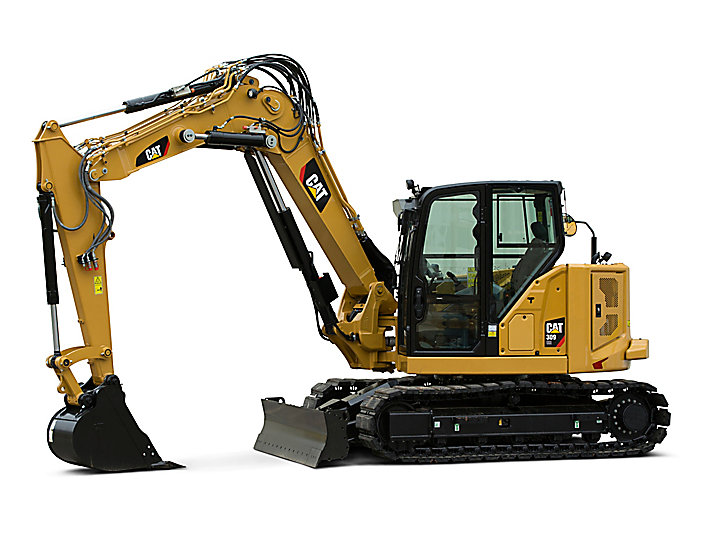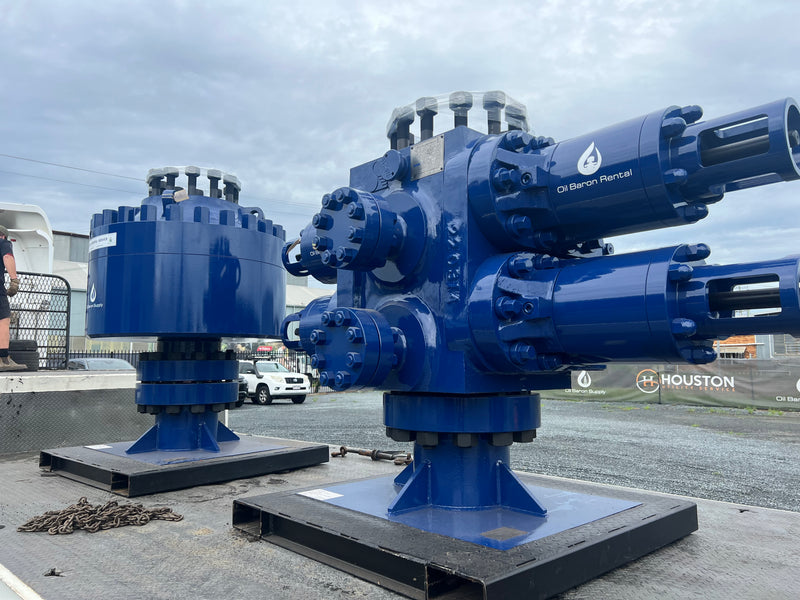Superior Rentals midland: local company profile for field managers
Wiki Article
A Comprehensive Guide to the Different Types of Oil Field Equipment and Pipeline Equipment Available
The oil and gas sector counts heavily on specific devices for reliable extraction and transportation. Different kinds of equipment, from drilling rigs to tank, play essential duties in this complex process. Each tool offers distinctive features that contribute to overall operational success. Comprehending these elements is crucial for anyone associated with the market. As the sector evolves, so too do the technologies that support it. What developments are on the horizon?
Drilling Rigs: The Foundation of Oil Exploration
Drilling rigs act as the crucial equipment in the domain of oil expedition, allowing companies to gain access to hydrocarbon reserves buried deep beneath the Earth's surface area. These rigs are available in various kinds, including land rigs, offshore rigs, and mobile systems, each designed to run in certain environments. Outfitted with advanced modern technology, drilling rigs can pass through geological formations with accuracy, ensuring effective source extraction. The architectural honesty and operational capacities of these rigs are crucial, as they have to endure severe problems and significant stress. The selection of an exploration rig affects the general task cost and timeline, making it an essential consideration for oil business looking for to maximize their exploration efforts and take full advantage of performance in their procedures.Pumps: Essential for Fluid Movement
In the oil extraction process, the function of pumps is considerable, promoting the activity of liquids throughout numerous phases of manufacturing. Pumps are essential for carrying crude oil, water, and other liquids from underground tanks to the surface and afterwards through pipelines to refineries. They come in various types, including centrifugal, favorable variation, and completely submersible pumps, each offering certain objectives based upon the liquid attributes and functional demands. Centrifugal pumps are frequently utilized for their effectiveness in high-flow applications, while positive variation pumps succeed in taking care of viscous fluids. The selection of pump influences general effectiveness, operational safety, and upkeep expenses. Appropriate selection and maintenance of pumps are vital for maximizing manufacturing and lessening downtime in oil field procedures.Valves: Managing Flow and Pressure

Shutoffs play a vital function in handling the flow and pressure of fluids within oil fields and pipes. Different kinds of shutoffs offer distinct applications, each designed to fulfill details functions essential for reliable operation - Superior rentals squeeze tools. Understanding the qualities and uses these valves is important for optimizing system efficiency and security
Sorts of Valves
Essential parts in oil field operations, valves play a vital duty in regulating the circulation and stress of fluids within pipelines and tools. Various sorts of shutoffs are used to meet the varied needs of oil and gas production. Typical types include gateway valves, which supply a straight-line circulation and minimal pressure drop; globe valves, understood for their strangling capabilities; and sphere shutoffs, identified for their fast on/off control. In addition, check valves prevent heartburn, while butterfly shutoffs offer a light-weight remedy for managing flow. Each valve type is created with specific products and setups to hold up against the severe conditions usually located in oil areas, making certain integrity and performance in operations. Comprehending these kinds is essential for efficient system monitoring.Valve Applications and Functions
While different types of valves offer unique functions, their main applications revolve around controlling circulation and pressure within oil and gas systems. Valves such as gateway, globe, and round shutoffs regulate fluid activity, making sure peak performance and safety and security. Entrance shutoffs are frequently utilized for on/off control, giving marginal flow resistance. Globe shutoffs, on the other hand, offer precise flow guideline, making them suitable for throttling applications. Ball valves are favored for their quick operation and limited sealing capacities. Additionally, pressure alleviation shutoffs are crucial for avoiding system overpressure, securing tools integrity. Overall, the suitable selection and application of valves improve operational performance, guaranteeing the reputable transport of oil and gas with pipes and handling facilities.Compressors: Enhancing Gas Transportation
Compressors play a crucial duty in the reliable transportation of gas, ensuring that it relocates smoothly with pipelines over cross countries. These devices increase the pressure of all-natural gas, allowing it to get rid of rubbing and elevation adjustments within the pipeline system. Additionally, compressors facilitate the harmonizing of supply and demand, fitting variations in consumption and production prices. Various types of compressors are used in the market, including centrifugal, reciprocating, and rotating screw compressors, each offering distinct advantages based upon the operational needs. Regular upkeep of these compressors is necessary to make the most of effectiveness and lessen downtime, inevitably adding to a dependable gas transport network. Their critical feature underscores the significance of compressors in the overall oil and gas infrastructure.Storage Tanks: Safe and Effective Fluid Administration
Reliable transportation of all-natural gas depends on different supporting systems, one of which is the proper monitoring of tank. These tanks play a vital role in securely having liquids, making sure that functional performance is maintained while decreasing environmental risks. Constructed from long lasting products, they are made to withstand high stress and corrosive components. Properly sized and strategically located, storage space containers promote the smooth circulation of natural gas and other liquids, avoiding traffic jams in supply chains. Routine maintenance and monitoring are important to identify leakages or structural problems, advertising safety and conformity with regulative requirements. Ultimately, the effective monitoring of storage space tanks is vital for the overall integrity and integrity of the oil and gas industry's fluid handling systems.
Pipeline Solutions: Infrastructure for Transportation
Pipeline demolition excavator systems act as the foundation of the oil and gas sector, helping with the efficient transport of hydrocarbons over large ranges. These systems include numerous elements, consisting of pipelines, valves, pumps, and compressors, all meticulously created to guarantee smooth circulation. The materials made use of in pipeline construction, usually steel or high-density polyethylene, are chosen for durability and resistance to rust. Pipeline networks can extend throughout land and water, connecting manufacturing websites to refineries and distribution. Furthermore, progressed technology makes it possible for real-time monitoring of flow prices and stress levels, improving functional performance. The strategic placement of these pipes minimizes environmental effect while making the most of source access, thereby playing a crucial role in meeting energy demands internationally.Safety And Security Equipment: Guaranteeing Worker and Environmental Defense
The procedure of pipeline systems, while essential for energy transportation, likewise provides substantial safety and security challenges for workers and the environment. Safety equipment plays a considerable function in reducing these dangers. Individual safety devices (PPE) such as headgears, handwear covers, and non-slip shoes safeguards employees from physical threats. In addition, gas discovery systems check for leakages, making certain that unsafe materials do not position a risk to workers or the surrounding community. Emergency closure systems are important for rapidly halting procedures throughout a dilemma, avoiding website here potential disasters. Spill control products, including absorbents and barriers, are basic for decreasing ecological impact. Overall, spending in comprehensive safety tools is important for preserving operational honesty and securing both workers and the setting in the oil and gas market.
Frequently Asked Concerns
Just how Do I Choose the Right Oil Field Equipment for My Project?
Selecting the ideal oil area equipment involves examining task requirements, spending plan restraints, and operational demands. Think about aspects such as devices dependability, compatibility with existing systems, and the distributor's credibility to ensure peak efficiency and security.What Are the Upkeep Demands for Oil Field Equipment?
Maintenance needs for oil area devices consist of normal inspections, lubrication, and prompt repair work. Operators ought to likewise follow supplier guidelines, monitor efficiency metrics, and guarantee conformity with safety policies to boost long life and performance.
How Can I Make Certain Compliance With Environmental Rules?
To ensure compliance with ecological regulations, firms must perform regular audits, carry out best methods, spend in training, preserve correct documentation, and remain updated on regulation (Superior Oilfield pipeline equipment rentals). Partnership with ecological agencies can pipeline inspection companies likewise boost adherence to regulationsWhat Is the Typical Life Expectancy of Pipeline Equipment?
The ordinary lifespan of pipeline devices commonly ranges from 20 to half a century, relying on factors such as material high quality, ecological problems, and upkeep practices. Regular assessments can substantially affect longevity and operational efficiency.Exactly how Do I Securely Transport Oil Field Equipment to Remote Locations?
Transferring oil field devices to remote places needs cautious preparation, consisting of course analysis, safeguarding authorizations, making use of ideal cars, and making sure security procedures are complied with. Appropriate training and communication among crews are important for successful transportation.Report this wiki page